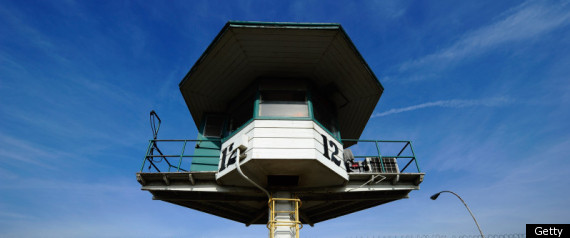 In one southern California county, prisoners will soon have to pay for the privilege of staying in jail.
In one southern California county, prisoners will soon have to pay for the privilege of staying in jail.Riverside County, California will start charging prisoners $142.42 per day of their prison stay, CNNMoney reports. The county's board of supervisors approved the measure on Tuesday as a way to save an estimated $3 to $5 million per year. Not every prisoner will be forced to pay up, however. The county will review each prisoner's case individually to determine if they can afford the fee.
The fee comes as the California correctional system continues to struggle with budget woes. Last month, in an effort to save money, the state transferred responsibility for lower-level drug offenders, thieves and other convicts to counties. The "prison realignment" is one of many measures the state has taken in recent years to close its budget gap. The California Supreme Court is considering this week whether the state broke the law when it used re-development funds to close a shortfall a few years ago, according to the Wall Street Journal.
But at some prisons, there still may be room for cost cuts. A California prison nurse was paid a salary of $269,810 in 2010 after working thousands of hours in overtime. Indeed, the five highest-paid California state employees all work in the prison system, according to LA Weekly.
California isn't the only state coping with cuts to its budget and prison system. Jefferson County, Alabama filed for the biggest municipal bankruptcy in U.S. history Wednesday after amassing massive debt and contending with a huge budget shortfall.
Other states have also considered extreme measures in order to cut prison-related costs. In Washington, corrections officials are considering leaving unsupervised thousands of former prisoners currently on parol in an attempt to cut costs, according to the Seattle Times. Thousands of prisoners in Texas have been eating two meals a day on weekends since April in a bid to save the prison system money. In Camden County, Georgia, officials mulled the idea of sending prisoners to work as firefighters to cope with budget woes.
But some have pushed back against the trend. In Minnesota, department of corrections officials argued in April that proposed cuts to the state's prison system were so deep that they would endanger public safety, according to CBS Minnesota. While in New York, the State Corrections Officers Union, told Gov. Andrew Coumo in February that his proposal to cut 3,500 prison beds would put guards who look over violent inmates in danger, the New York Daily News reported.
Though the lingering effects of the recession only made worse the budget woes of many prison systems, the problem wasn't born out of the financial crisis. The number of offenders serving life sentences in prison quadrupled between 1984 and 2008, USA Today reports.
And while state prisons may be suffering, federal prisons are filling that same pinch. President Obama's combined budget requests for fiscal years 2011 and 2012 included a 10 percent increase in funding for the Federal Bureau of Prisons, bringing the total to more than $6.8 billion, according to Mother Jones.
Origin
Source: Huff
No comments:
Post a Comment